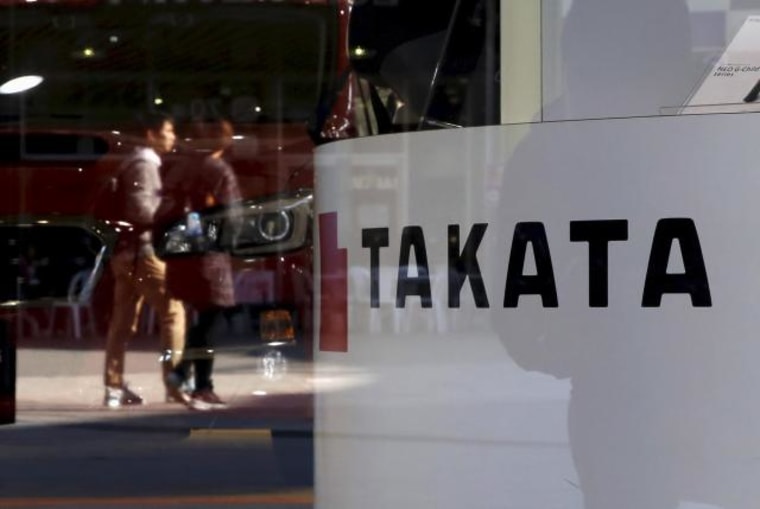Almost 100 million Takata replacement airbags that are currently scheduled to be installed may need to be replaced, based on new testing that showed 2.7 million of the company's new air bag inflators are defective.
Takata's bankruptcy filing last month was meant to draw a line under the auto industry's biggest safety recall. However, last week's announcement of more air bag inflator recalls suggests automakers could face fresh liabilities in the future.
In late-2015, U.S. regulators gave Takata until the end of 2019 to prove that its replacement air bag inflators — which add a drying agent to combat moisture that can set off the ammonium nitrate compound in an inflator, with potentially lethal results — are also safe.
But some industry consultants, explosives experts and former employees are already questioning whether the company's workaround guarantees safety over the long term.
Millions More Defective Air Bag Inflators
Last week, the National Highway Traffic Safety Administration announced that new testing at Takata prompted the Japanese parts firm to declare 2.7 million of the new air bag inflators defective.
Takata's automaker customers, which have so far borne much of the estimated $10 billion cost of replacing faulty bag inflators, could be on the hook for future liabilities in the event that Takata fails to prove that the desiccant workaround is sufficient.
Last week's recall is the first to involve Takata bag inflators that use a drying agent.
Nearly 20 automakers have been affected by the air bag recalls, and some still use Takata inflators for replacements in the recalls. Automakers including Honda, Toyota and Nissan have said they will stop using Takata inflators for new contracts for future models.
"The automakers... and Takata... all know that this is a future issue," said Scott Upham, chief executive at Valient Market Research, whose clients include auto parts suppliers. "But I think everybody is concerned about the near-term issues, and the financial arrangements of the bankruptcy."
Takata says it has produced around 100 million replacement inflators containing drying agents: The 2.7 million recalled last week used calcium sulfate, and the rest contain zeolite.
"We still have to prove the safety of our desiccated inflators, but we believe those using zeolite are safer than those using calcium sulfate," said spokesman Toyohiro Hishikawa.
The company has declined to comment further on the testing process or the NHTSA deadline.
Takata is the only global air bag maker to use ammonium nitrate as a propellant in its inflators. The compound's vulnerability to high temperature and moisture can trigger an explosion that can spew shrapnel inside a vehicle. The defect has been linked to at least 17 deaths, mostly in the United States.
Not a Real Fix
The new inflators with the added desiccant have not been linked to any deaths or injuries, but the problems with the original inflators typically took five years or more to emerge.
Keiichi Hori, who oversees automotive safety components at the Japan Explosives Society, said adding a drying agent can reduce, but not eliminate, the risk of uncontrolled explosions.
If the desiccant can prevent all moisture from reaching the inflator propellant, "then it would be possible that the inflators could be used safely," he said. "Otherwise, alternatives should be considered."
But Upham, the industry consultant, predicts the recalled parts will themselves eventually be recalled — because ammonium nitrate is fundamentally too volatile — and Takata's carmaker customers may again have to foot the bill given that Takata is unlikely to be able to cover the costs.
"Automakers are hoping and praying that the desiccant solves the problem... (but) this might come back to bite them," Upham said.
